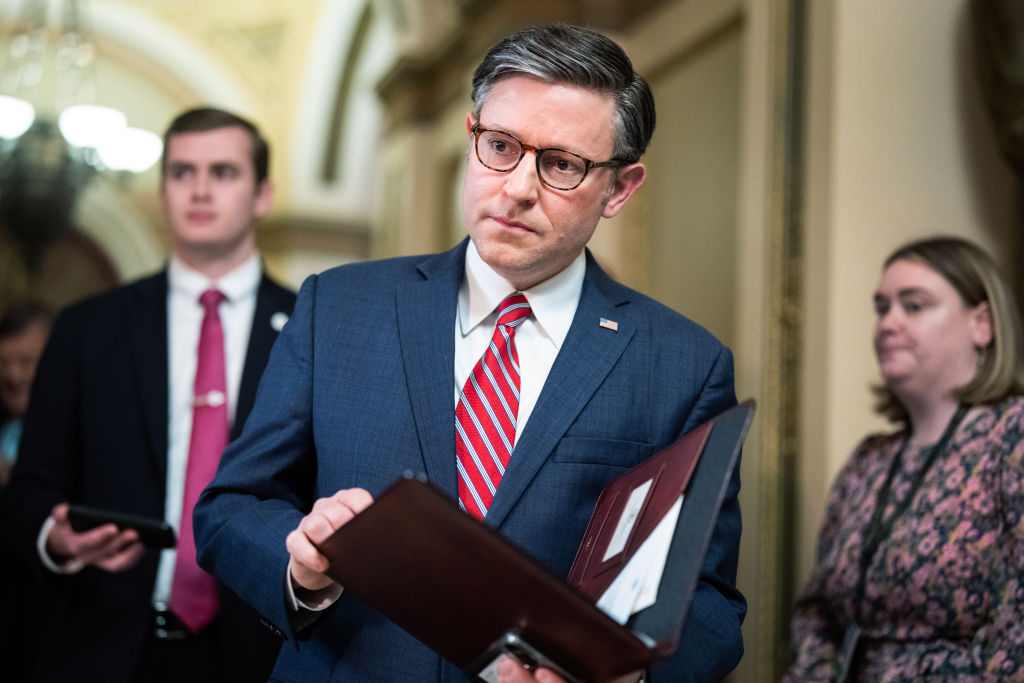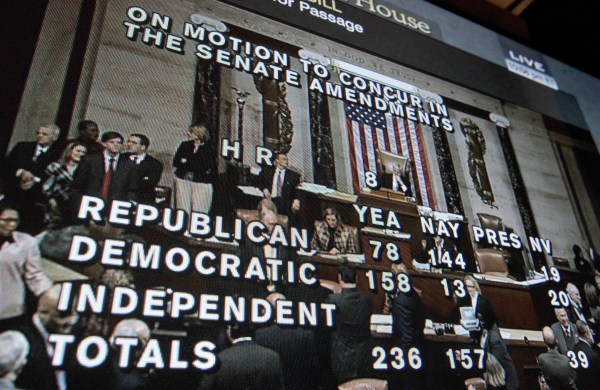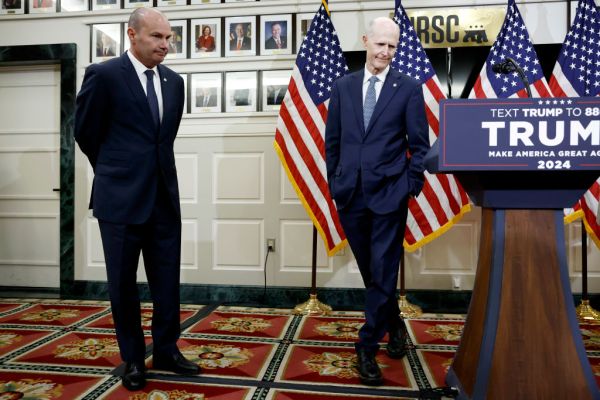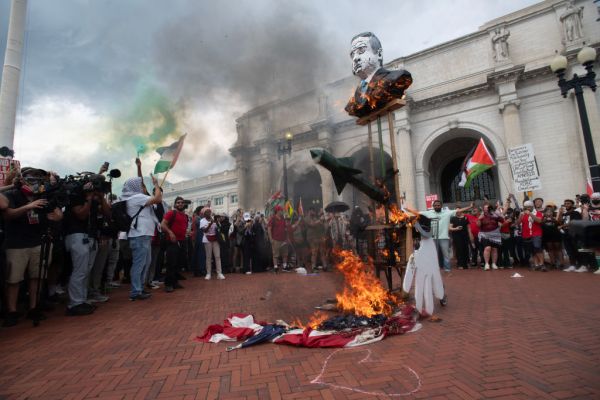Happy Thursday! If you’re looking for a Christmas getaway, have we got great news for you: North Korea will reportedly open its doors to tourists in December for the first time since the pandemic. No, that’s not Dasher or Dancer—it’s a trash balloon.
Quick Hits: Today’s Top Stories
- The Consumer Price Index (CPI) rose 0.2 percent month-over-month and 2.9 percent annually in July, the Bureau of Labor Statistics reported on Wednesday, marking the lowest annual inflation reading since March 2021. By comparison, last month’s CPI report indicated a slight 0.1 percent decline month-over-month in June and a 3.0 percent annual increase. Core inflation—CPI stripped of the more volatile food and energy prices—also increased by 0.2 percent from June to July and 3.2 percent since July 2023, the lowest annual increase since April 2021. The Federal Reserve will see one more CPI report before deciding whether or not to cut rates at its meeting next month.
- Ukraine has expanded its offensive into Russian territory in recent days, launching an attack in the western Russian region of Belgorod in addition to the advance in the Kursk region. The Belgorod governor declared a state of emergency there on Wednesday. Ukrainian President Volodymyr Zelensky said on Wednesday that Ukrainian forces are continuing to push through Russia’s Kursk oblast—adjacent to Belgorod—and he estimated Ukraine has seized one to two kilometers in the region, capturing more than 100 Russian soldiers in the process. The Ukrainian military also targeted air bases in Russia as part of the advance on Tuesday night, though Russia claimed to have shot down more than 100 missiles and drones that were part of the onslaught.
- German government officials issued an international arrest warrant for a Ukrainian male diver suspected of being involved in the 2022 explosion that damaged the Nord Stream pipelines, German media first reported on Wednesday. German prosecutors sent the arrest warrant to Polish authorities, where the suspect—a diving instructor identified only as Volodymyr Z—was a resident for some time, though he departed the country by the time law enforcement was notified of the warrant. The suspect, along with two Ukrainian accomplices, are believed to have attached explosive detonators that damaged the two natural gas pipelines.
- German officials are investigating potential Russian involvement in two separate potential failed sabotage attempts in the country’s western region—one at a military base near Cologne, Germany, and another at a NATO airfield near Germany’s border with the Netherlands. German authorities said on Wednesday a perpetrator had cut a hole in the military base’s fence—near its water supply units—shortly before the water quality system alerted officials of “abnormal values.” Meanwhile, a NATO spokesman said security guards stopped a suspect who attempted to gain unauthorized entry onto the airfield on Tuesday.
- Japanese Prime Minister Fumio Kishida announced on Wednesday he will not run for reelection as party leader, and will instead step down in September, at the end of his three-year term. Kishida’s successor as leader of Japan’s Liberal Democratic Party (LDP) will likely also succeed him as prime minister, since the LDP controls both houses of parliament. Kishida’s cabinet approval rating was well below 20 percent in July.
- The World Health Organization (WHO) declared the infectious Mpox virus to be a “public health emergency of international concern” on Wednesday after a new strain—originating in the Democratic Republic of Congo—caused case outbreaks in nearby countries. WHO, an agency of the United Nations, stated its concern for the virus’ potential spread to other countries on the continent, and possibly to countries outside of Africa as well. The designation is meant to encourage countries to prepare for a potential outbreak within their borders as well as share resources and data with poorer countries.
- Judge Juan Merchan, the judge who presided over former President Donald Trump’s New York criminal case, on Tuesday declined a third request from Trump’s legal team that he recuse himself. Trump attorney Todd Blanche had alleged that Merchan’s daughter had a “long-standing relationship” with Vice President Kamala Harris, including the daughter’s employment at a political consulting company that worked on Harris’ prior campaigns. “The Court notes that this same argument was already made by [Trump] in his first two motions for recusal,” Merchan wrote in a three-page opinion. “This Court now reiterates for the third time, that which should already be clear—innuendo and mischaracterizations do not a conflict create. Recusal is therefore not necessary, much less required.” On September 16, the judge will issue a decision as to whether Trump’s conviction should be thrown out, based on the Supreme Court’s decision granting presidents immunity for some actions while in office.
- A California federal judge ruled on Tuesday that the University of California, Los Angeles (UCLA), is barred from “knowingly allowing or facilitating” school-sanctioned student groups, activities, or events that exclude Jewish students. The case was brought by three Jewish UCLA students who said anti-Israel protesters prevented them from entering or crossing through parts of campus last spring. “Jewish students were excluded from portions of the UCLA campus because they refused to denounce their faith,” Judge Marc Scarsi wrote in his 16-page opinion. “This fact is so unimaginable and so abhorrent to our constitutional guarantee of religious freedom that it bears repeating. … Under constitutional principles, UCLA may not allow services to some students when UCLA knows that other students are excluded on religious grounds, regardless of who engineered the exclusion.”
- Columbia University President Minouche Shafik announced Wednesday she was resigning from her post—effective immediately—after about a year in the job. “My moving on at this point would best enable Columbia to traverse the challenges ahead,” she wrote in her resignation letter. The embattled administrator faced intense criticism—including from members of Congress—for her handling of the anti-Israel campus protests that saw protesters illegally occupy a building on Columbia’s campus in the spring. The news comes just days after three Columbia deans resigned after being placed on administrative leave over text messages they sent during a panel on Jewish student life.
The Funding Fight Cometh

In a 1790 letter to a friend, Benjamin Franklin noted, “In this world nothing can be said to be certain, except death and taxes.”
While we are (unfortunately) not polymath Founding Fathers with genius-level intellect, we have enough experience to justify taking the liberty to add another certainty, some nearly 235 years later, to Franklin’s list: congressional federal budget fights.
Yes, it’s almost that time of year again. When members of Congress return from their August recess—or “state work period,” as they prefer—they’ll have but three weeks to come to an agreement to avoid a federal government shutdown when the fiscal year resets at the stroke of midnight on September 30. By that time, at least in theory, Congress should have passed 12 individual appropriations bills to fund the government for fiscal year 2025. As it stands today, only five of the 12 bills have cleared the House and none have passed the Senate, making a semi-repeat of this current fiscal year’s funding cycle—delayed by almost half a year—a possibility. However, uncharacteristic support from a usually rebellious congressional caucus may make the process easier.
If it feels like only a blink of an eye since we were warning of “looming government shutdowns,” that’s because it was. For this fiscal year, Congress passed not one … not two … not three … but four continuing resolutions (CRs)—stopgap funding bills—to extend spending past last fall. Lawmakers finally finalized the budget in a duo of “minibus” packages in late March, nearly six months after the initial deadline.
That scenario isn’t new—even if 2024 was a particularly dramatic example—nor all that surprising. Democratic Sen. Chris Murphy of Connecticut said in July that he does not expect funding the next fiscal year to be any different. “Aren’t we in this territory every year?” Murphy told the Washington Post. “My assumption is we’re doing a CR.”
Ahead of the budget fight, some D.C. playmakers have already drawn lines in the Capitol’s marble floors. Top Republicans have outlined their wish list in the series of 12 unapproved appropriation bills, highlights of which include an $8 billion increase in defense spending plus major cuts to the Education and Health and Human Services departments—cuts that have drawn the ire of their Democratic colleagues. That said, GOP Rep. Tom Cole of Oklahoma—chair of the House Appropriations Committee—stressed in June that these bills were only “negotiating positions.”
Meanwhile, in the Senate, the chamber’s Democratic majority has set the groundwork to take aim at a bipartisan spending cap deal negotiated last year. Senate Appropriations Chair Patty Murray of Washington took to the Senate floor in June, describing the one percent funding increase limit on the upcoming fiscal year’s non-defense spending—established in 2023’s Fiscal Responsibility Act—as “grossly inadequate.”
Against that backdrop, the House Freedom Caucus (HFC)—consisting of some of Congress’ most disruptive Republicans—announced on Monday its support for a CR extending existing federal funding beyond the end of September deadline.
For TMD readers who have kept up with Congress’ never-ending federal funding saga over the past year, we would not blame you for thinking that hell has just frozen over. Indeed, several members of the HFC led the effort to oust Speaker Kevin McCarthy from his position last October after McCarthy struck a deal with Democrats to avoid a government shutdown with a CR, rather than pass legislation backed by the group. Members of the caucus also voted against the three following CRs.
The HFC’s most recent change of heart is seemingly driven by an unwillingness to rock the boat with a government shutdown a little more than a month before the election. But that has not stopped the caucus from making demands that congressional leadership, led by Speaker Mike Johnson, is unlikely to agree to, potentially complicating its passage.
As part of their CR proposal, HFC members have demanded the inclusion of policy chair Rep. Chip Roy of Texas’ Safeguard American Voter Eligibility (SAVE) Act—a House bill requiring Americans to provide proof of citizenship to register to vote in federal elections. Republicans are hoping to put Democrats on the record on one of this election season’s most important issues: illegal immigration. However, the measure—which has already passed the House—will likely not be tacked on to a CR because of steep Democratic opposition which, in a House chamber where Republicans narrowly hold a 220-212 majority, could sink the stopgap altogether.
In addition, the HFC said the CR should extend funding “into early 2025 to avoid a lame duck omnibus bill”—a super bill that contains all or many of the 12 spending bills, passed at once—“that preserves Democrat spending and policies well into the next administration.” The group is likely banking on flipping the Senate and the White House in November—though odds of that have gotten somewhat slimmer—for a GOP trifecta that could give Republicans unrivaled budgetary power after the new Congress is sworn in. Still, it’s not foolproof: The last time Republicans had a trifecta, from 2017 to 2019, disputes between then-President Donald Trump and Congress caused the longest federal government shutdown in history.
Nor is a Republican sweep the only possible outcome this fall. Democrats could also gain complete control over the executive and legislative branches in January—or the handful of other permutations of divided government.
That uncertainty—plus reportedly a desire to let the next administration and Congress start with a clean slate—is why top Republicans have indicated they would rather work with today’s divided Congress, consisting of a GOP-led House and a Democratic-controlled Senate, to compromise on a budget. Cole, the Appropriations Committee chair, said in June that Congress should finalize spending for the next fiscal year in the lame-duck period following the November elections and the swearing-in of the next Congress in early January.
While it may seem like House Republicans are poised to be thrust into yet another internecine standoff, Matt Glassman, a senior fellow at Georgetown University’s Government Affairs Institute, told TMD that he believes the HFC’s demands are nothing but “kicking and screaming.” “I think we’ll get a pretty basic, clean CR that extends [federal funding] until either November or December,” he said, describing a CR that only extends current funding, with no add-ons. “I don’t see the Freedom Caucus realistically putting up a real fight over anything.”
Since the Freedom Caucus has tried to block CRs before, why aren’t they expected to this funding cycle? In short, the election. House members do not want to risk the optics of their party being blamed for a government shutdown in an election year, a factor that has doomed previous GOP efforts to retake the White House. Glassman also told TMD that congressmen and women across the board simply “want to go home and campaign” rather than stay back in Washington and negotiate.
Instead, the real drama most likely lies after Congress passes a CR, setting up a post-election budget battle. House Republican leadership will have to negotiate with congressional Democrats, Biden, and potential intra-party rebels to reach a consensus against the backdrop of a presidential transition period.
What will next year’s federal budget look like? Glassman says we will have to be patient. “I don’t think any of the politics in September will be about the final state of the [funding] bills,” he told TMD. “We’ll have to wait until after the election for that.”
Worth Your Time
- Could Ukraine’s recent offensive into Russia’s Kursk region mark a turning point in the two-and-a-half-year war? Writing in Foreign Policy, Carl Bildt argues that the answer could be yes. “Wars are political as well as military, and it’s in the political arena where Ukraine’s incursion into Kursk has fundamentally changed the course of the conflict,” he argued. “The Russian leader is clearly rattled. During a series of hastily convened meetings with his security council and other advisors, he’s been trying to play down Ukraine’s successes by calling them a ‘provocation,’ admonishing regional governors not to mention the size of Ukraine’s area of control, looking sternly at his military commanders, and trying to appear unmoved by the sudden turn of events. We know that Putin sometimes has a distorted view of reality. But he most certainly understands that if his forces don’t drive the Ukrainians back over the border soon, it will be a mortal blow to the narrative and political line he has carefully—and at great cost—been trying to build since last summer.”
- A Chinese religious movement—the Falun Gong, which also controls the Epoch Times newspaper—seems to be slowly buying out an entire town in upstate New York, William Bredderman reported for New York Magazine. Why? “Epoch toggled through consecutive unsuccessful business models—free content with ads, paywalls, print delivery—and survived on donations from wealthy believers,” Bredderman wrote. “‘It has all the problems other companies face in digital,’ the former staffer said, suggesting that all the ancillary companies represent efforts to find additional revenue. Epoch simply might have arrived at the same conclusion as other 21st-century publications: The news business just isn’t business enough, and a media venture must become a lifestyle brand for its consumers. Seen this way, Middletown—where your shopping and coffee and education and entertainment and even, till recently, your oil change can send money back to Falun Gong and its media affiliates—begins to look like the Epoch empire in microcosm.”
Presented Without Comment
Daily Mail: One in Five Voters and a Third of Republicans Believe the FBI Was Behind the Assassination Attempt on Donald Trump
Also Presented Without Comment
Washington Post: Robert F. Kennedy Jr. Tried to Meet With Kamala Harris to Discuss Cabinet Job
Also Also Presented Without Comment
New York Times: When Will They Speak Again? Once Close, Biden and Pelosi Are at Odds.
When Representative Hakeem Jeffries, Democrat of New York and the minority leader, took over, he invited [former House Speaker Nancy] Pelosi to attend the weekly leadership meeting. She declined. Instead, she is often seen sitting in the cloak room eating hot dogs with a longtime friend and confidante, Representative Anna G. Eshoo, Democrat of California.
In the Zeitgeist
There are only nine days left until the first game of the college football season—and it’s set to be a … confusing few months, as The Athletic’s Stewart Mandel laid out in this hilarious article.* An accompanying explainer video can also help us all understand why on Earth UCLA will be playing an in-conference game at Maryland this year:
Toeing the Company Line
- In the newsletters: Scott dove into (🔒) how the CHIPS and Science Act is affecting companies two years after its passage, Jonah took issue (🔒) with David French’s recent column endorsing Kamala Harris, and Nick argued that, despite the high stakes, this is the most “shockingly vacuous” election of his lifetime.
- On the podcasts: Jonah is joined on The Remnant by Tevi Troy to discuss Troy’s new book, The Power and the Money: The Epic Clashes Between Commanders in Chief and Titans of Industry. On Advisory Opinions, Sarah and David are joined by former White House counsel Bob Bauer to discuss his book, The Unraveling: Reflections on Politics Without Ethics and Democracy in Crisis, as well as the last few months of Democratic presidential politics.
- On the site: Charlotte reports on the ceasefire-for-hostage negotiations scheduled to take place in Qatar later today and John dives into some new studies on abortion trends post-Dobbs.
Let Us Know
What do you think next year’s federal budget should prioritize?
Correction, August 15, 2024: This piece originally misspelled Stewart Mandel’s first name.











Please note that we at The Dispatch hold ourselves, our work, and our commenters to a higher standard than other places on the internet. We welcome comments that foster genuine debate or discussion—including comments critical of us or our work—but responses that include ad hominem attacks on fellow Dispatch members or are intended to stoke fear and anger may be moderated.
With your membership, you only have the ability to comment on The Morning Dispatch articles. Consider upgrading to join the conversation everywhere.